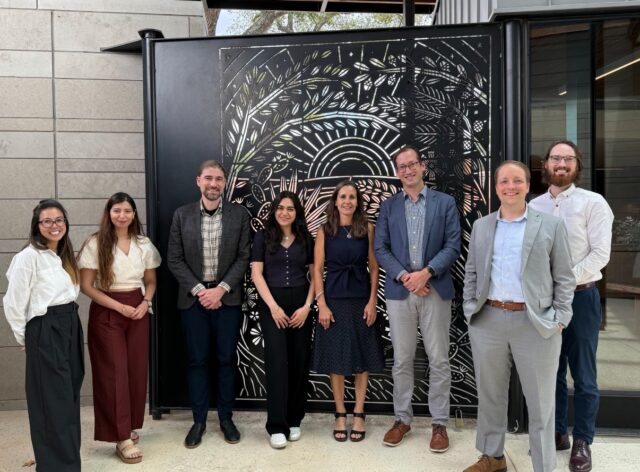By Juliana Vasquez | Staff Writer
America’s mental health crisis continues to worsen, with a group of researchers seeking to improve the support systems of those struggling with mental illness through an unsuspecting channel: churches.
Tapestry of Care, a new $1.76 million initiative, will bridge the gap between faith communities and mental health support, helping churches better address crises and connect congregations with vital resources.
Research for the initiative will be conducted in the San Antonio area, focusing on rural churches that may not normally have access to resources regarding mental health support.
Dr. Dustin Benac, a clinical assistant professor at Baylor’s College of Arts and Sciences and TOC co-leader, said the overall goal of TOC is to “build an ecosystem of care to support and serve and resource people who feel like they’re brought up short.”
TOC Project Co-Leader Rebecca Brune is the executive director of the Congregational Collective, a nonprofit seeded by the H.E. Butt Foundation based in the San Antonio area. Her project co-leaders refer to her as their “boots on the ground” as she sees firsthand the impact TOC’s work has in rural San Antonio churches.
“We’re approaching and taking something that historically has been so fragmented … and isolated and really taking an attempt to bring stakeholders and systems together in [the] spirit of community to really put this work into play,” Brune said.
Members of the team anticipate encountering obstacles to their research. One obstacle is the negative stigma surrounding mental health issues within the church and the LatinX community, Brune said.
“We had to take a step back and create a shared understanding and a language to even name what it was before we even begin to talk about addressing mental health, and that was a learning [experience] for us,” Brune said.
Nevertheless, by adapting an understanding of culture and being ready to have difficult conversations, Brune believes that her and her team’s work can be sustained within and integrated into the church.
Dr. John Naslund, TOC co-leader, instructor and researcher from Harvard Medical School, took TOC as an opportunity to examine how Harvard’s faith community and mental health programming interact. Naslund used the project to address how faith communities might better engage with mental health services.
“There is a very active faith community, but I don’t know how engaged they are with the Harvard University Health Services and the mental health programming. I think they’re actually kind of separate, and I think that’s a mistake,” Naslund said. “So I think there could be an opportunity to learn from our project to actually strengthen college student campus mental health programming.”
In Waco and surrounding areas, churches have begun to utilize mental health resources. Two Waco-area churches, Antioch Community Church and First Woodway Baptist Church, have initiatives in place to encourage and support individuals experiencing mental health crises.
Vincent Carpenter, the director of pastoral care at Antioch, described his role as a liaison between the congregation and the resources they need to thrive. Along with referring those struggling within the church to the various ministries offered, Carpenter also keeps a list of professional Christian counselors to whom he refers people.
Michael Carlson, the congregational care pastor at First Woodway Baptist Church, said his role is to shepherd and oversee First Woodway’s care ministry. First Woodway has a referral process for those who are struggling with mental illness, connecting them with local Christian counselors and mental health experts.
They even host an annual event called “Care Day.” The event hosts a variety of seminars led by experts on various topics in the mental health field.
“Emotionally [and] psychologically, we’re created to be communal people. We’re created for community,” Carlson said. “Because of that, that’s where our support comes from. That’s where our hope comes from.”
However, not all churches have the resources to provide mental health care. As Tapestry of Care progresses, Benac hopes it revolutionizes the connection between mental health and faith communities.
“Some of the work of this project is going to surface stories of incredible creativity, incredible resilience [and] incredible care that’s already happening in faith communities and that can lead to transformation,” Benac said. “The people that are served and people that are not served by this project can learn about it in some form.”


